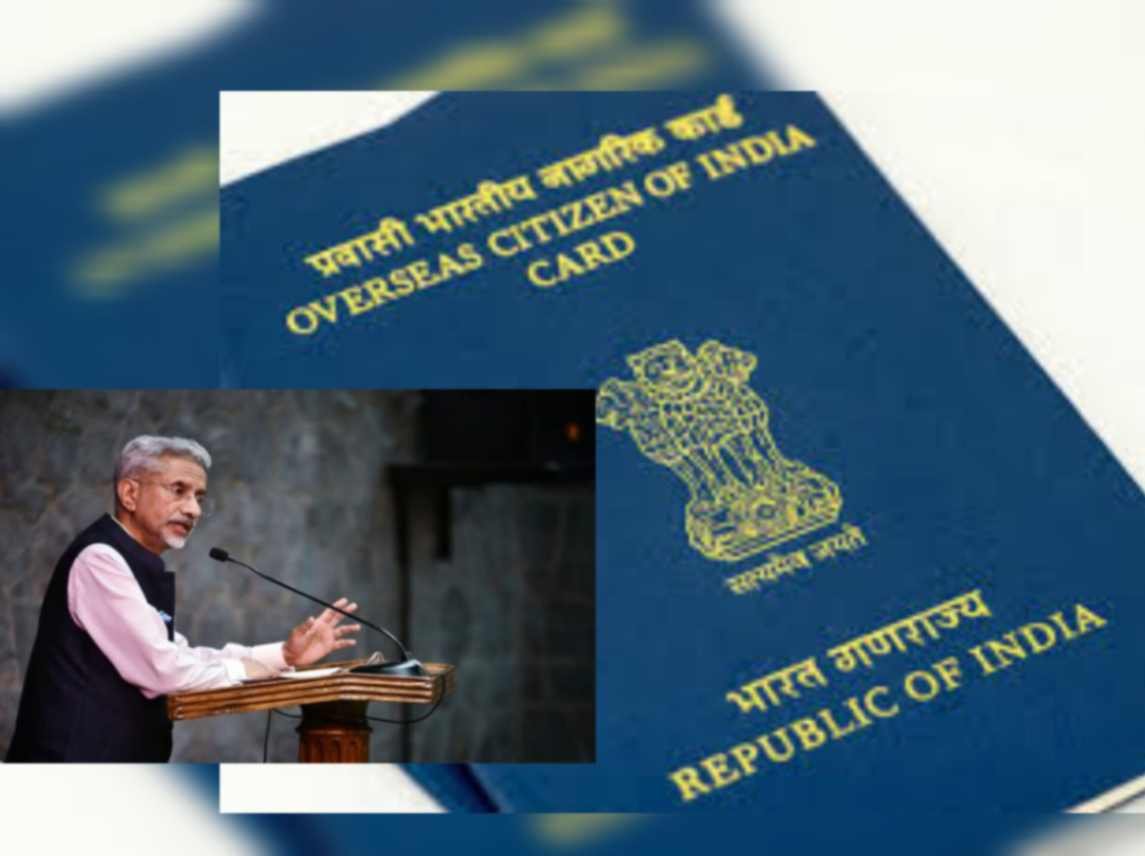Challenges and Considerations Surrounding Dual Citizenship for Indians Settled Abroad, According to EAM Jaishankar
Introduction:
India’s Union External Affairs Minister, S Jaishankar, recently addressed the challenges associated with providing dual citizenship to Indians settled abroad. Speaking at the TAKEPRIDE 2023 summit in Chennai, he acknowledged the ongoing debate surrounding dual citizenship and highlighted the complexities related to economic and security concerns for Indians living in different countries. While the Overseas Citizenship of India (OCI) initiative is a step toward meeting the demand, Jaishankar emphasized that the discussion on dual citizenship remains active.
Understanding Dual or Multiple Citizenship
Dual or multiple citizenship refers to the legal status granted to an individual who holds two or more nationalities simultaneously. This status enables a person to fully participate in the political processes of both nations, enjoy visa exemptions while traveling, and automatically obtain work permits. Dual citizens can hold passports from both countries, enjoying social and legal rights on par with other citizens. However, some countries impose restrictions on the rights available to dual citizens. Notable examples of countries allowing dual citizenship include the United States, Finland, Albania, Israel, and Pakistan, each with its own set of laws and regulations.
Dual Citizenship in India
Constitutional Limitations
The Indian Constitution presently prohibits Indian nationals from simultaneously holding citizenship of another country. This constitutional provision reflects a stance on singular allegiance to the nation. Despite this restriction, the Indian government has established the Overseas Citizenship of India (OCI) program, primarily catering to Persons of Indian Origin (PIOs) who have migrated to countries other than Pakistan and Bangladesh.
OCI Program for PIOs
The OCI card offers multi-purpose, multi-entry access to India for cardholders. Additionally, they benefit from a lifelong visa facility for visiting India and possess a specific right to become Indian citizens under certain conditions. However, it’s crucial to note that OCIs do not enjoy voting rights in India and are barred from contesting elections for legislative or constitutional posts in the country.
Economic and Security Challenges
Minister Jaishankar, in his interaction with entrepreneurs, underscored the economic and security challenges associated with determining which Indians settled abroad should be eligible for dual citizenship. These challenges are multifaceted, encompassing considerations of economic contributions, geopolitical factors, and the potential impact on national security.
Economic Considerations
Granting dual citizenship entails recognizing individuals as stakeholders in the economic landscape of both India and their adopted countries. Assessing the economic contributions of Indians abroad becomes crucial, as it can influence decisions on dual citizenship eligibility.
Security Concerns
National security is a paramount consideration when contemplating dual citizenship. Evaluating the implications of granting dual citizenship to individuals residing in different geopolitical environments involves assessing potential risks and ensuring that dual citizens do not compromise the security interests of either nation.
Comparison with Other Nations
Several countries, including the United States, Finland, Albania, Israel, and Pakistan, have embraced dual citizenship. However, each nation has established its unique framework, addressing the rights and responsibilities of dual citizens. India can draw insights from these models while formulating its approach to dual citizenship.
Challenges and Opportunities for Indian Entrepreneurs Abroad
During the TAKEPRIDE 2023 summit, a participant raised concerns about the ease of doing business for Indian entrepreneurs settled in foreign nations. Minister Jaishankar’s acknowledgment of the challenges surrounding dual citizenship resonates with these concerns, as the eligibility criteria for dual citizenship could significantly impact business operations and investments by Indian entrepreneurs abroad.
Conclusion
The debate on dual citizenship for Indians settled abroad remains a dynamic and evolving discussion, marked by economic, security, and geopolitical considerations. While the OCI program addresses certain aspects of this demand, the complexities involved in determining eligibility for dual citizenship necessitate careful deliberation. Striking a balance between embracing the global diaspora as economic contributors and safeguarding national security interests is crucial for India as it navigates the path toward addressing the demands for dual citizenship.
Frequently asked questions
Can Indian citizens hold dual citizenship according to the Indian Constitution?
No, the Indian Constitution presently prohibits Indian nationals from simultaneously holding citizenship of another country. This constitutional provision reflects a stance on singular allegiance to the nation.
Do Overseas Citizenship of India (OCI) cardholders have voting rights in India?
No, OCI cardholders do not have voting rights in India. Additionally, they are ineligible to contest elections for legislative or constitutional posts in the country.
Why is there a debate on providing dual citizenship to Indians settled abroad?
The debate on dual citizenship involves various challenges, including economic considerations, security concerns, and geopolitical factors. Determining which Indians settled abroad should be eligible for dual citizenship requires careful deliberation due to the multifaceted nature of these challenges.
Which countries, apart from India, allow dual citizenship?
Several countries, including the United States, Finland, Albania, Israel, and Pakistan, permit dual citizenship. However, each nation has established its unique framework governing the rights and responsibilities of dual citizens.
What is the role of the OCI program in addressing the demand for dual citizenship?
The OCI program addresses certain aspects of the demand for dual citizenship by providing certain privileges to Persons of Indian Origin (PIOs) who have migrated to countries other than Pakistan and Bangladesh. However, it does not grant full dual citizenship status.

























